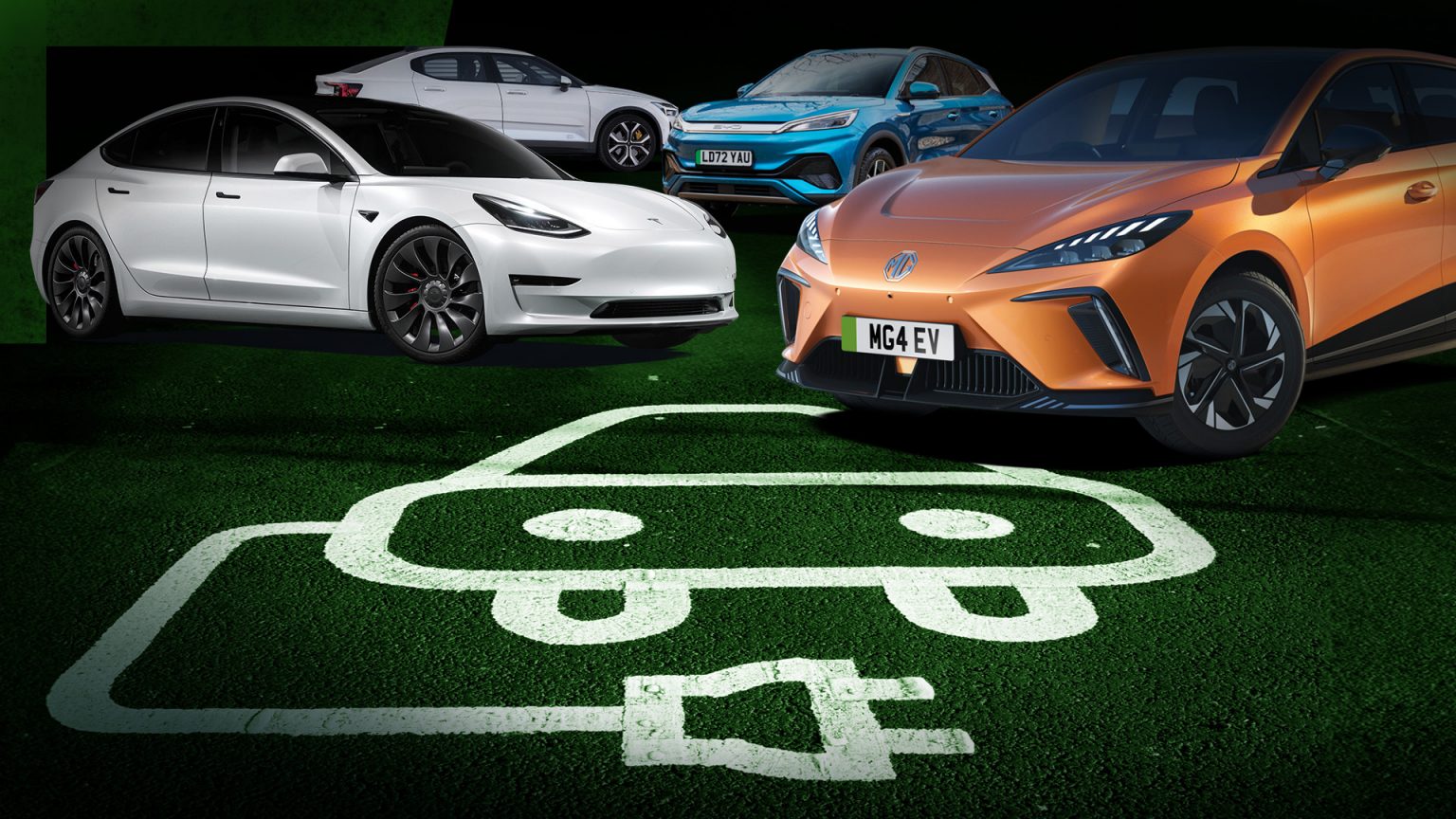Car Dealerships Step Up Opposition To Government EV Requirements

Table of Contents
Financial Burden of EV Infrastructure
Many dealerships lack the financial resources to invest in the necessary infrastructure for EV sales and service. The transition to EVs represents a substantial financial undertaking, requiring significant upfront investments and ongoing operational costs. This includes the cost of installing high-powered charging stations, specialized EV repair equipment, and comprehensive employee training programs. The sheer cost of adapting to these government EV requirements is a major hurdle for many businesses.
-
High initial investment costs for charging infrastructure: Installing fast-charging stations capable of handling the power demands of modern EVs is expensive. The cost varies significantly depending on the number of chargers, their power output, and the necessary electrical upgrades to the dealership's grid.
-
Need for specialized tools and training for EV maintenance: EVs require specialized tools and diagnostic equipment for maintenance and repairs, different from those used for gasoline-powered vehicles. Training technicians to work on these complex systems adds another layer of expense.
-
Uncertainty surrounding return on investment for EV infrastructure: Dealerships face uncertainty about the return on investment for EV infrastructure. The profitability of EV sales depends on several factors, including consumer demand, competition, and government incentives.
-
Potential for financial strain on smaller dealerships: Smaller dealerships, in particular, may struggle to absorb the costs associated with EV infrastructure upgrades, potentially leading to financial hardship or even closure if they can't adapt to these government EV requirements.
Consumer Demand and Market Readiness
Dealerships argue that current consumer demand for EVs doesn't justify the significant investment required to meet the government EV requirements. While EV sales are growing, they still represent a smaller portion of the overall automotive market. Several factors contribute to this lower-than-expected consumer demand.
-
Limited consumer awareness and understanding of EV technology: Many consumers remain hesitant about adopting EVs due to a lack of understanding about their technology, charging processes, and maintenance requirements.
-
Range anxiety remains a significant barrier to EV adoption: Concerns about the driving range of EVs and the availability of charging stations continue to deter potential buyers, especially in areas with limited public charging infrastructure.
-
Lack of sufficient public charging infrastructure in many areas: The lack of widespread, reliable public charging infrastructure, particularly outside major metropolitan areas, remains a significant barrier to EV adoption. This impacts consumer confidence and hinders the growth of the EV market, impacting the feasibility of meeting government EV requirements.
-
Higher upfront costs of EVs compared to gasoline vehicles: The higher purchase price of EVs compared to gasoline-powered vehicles is another deterrent for many consumers. While operating costs are generally lower, the initial investment can be a significant hurdle.
Government Support and Incentive Programs
Dealerships are calling for more robust government support and incentive programs to help offset the costs of transitioning to EVs and meeting the government EV requirements. Currently, many believe the existing support is insufficient.
-
Insufficient government funding for EV infrastructure development: Government funding for public charging infrastructure development needs to be significantly increased to encourage widespread EV adoption and address range anxiety concerns.
-
Need for more comprehensive consumer incentive programs: More substantial consumer incentives, such as extended tax credits, rebates, and low-interest loans, are needed to stimulate EV demand and make them more accessible to a wider range of consumers.
-
Lack of clarity and consistency in government regulations: Inconsistent and frequently changing government regulations surrounding EVs create uncertainty and make it difficult for dealerships to plan for the future and invest in the necessary infrastructure.
-
Calls for better collaboration between government and dealerships: Dealerships are urging for a closer collaboration between government agencies and the automotive industry to develop effective strategies for a smooth transition to EVs that take into account the practical challenges faced by dealerships.
Concerns Regarding Inventory Management and Sales Training
The shift to EVs necessitates changes in inventory management, sales strategies, and employee training. Dealerships express concerns about the added complexities of managing EV inventory and training sales staff on EV-specific features and benefits. These are significant challenges when adapting to government EV requirements.
-
Need for specialized training programs for sales staff on EVs: Sales staff require specialized training to effectively communicate the benefits of EVs, address consumer concerns, and provide informed guidance on charging, maintenance, and other EV-specific aspects.
-
Challenges in managing EV inventory due to longer lead times: EVs often have longer lead times compared to gasoline vehicles, making inventory management more complex and requiring more sophisticated forecasting and planning.
-
Uncertainty about the long-term viability of EV sales: Dealerships need clear signals about the long-term commitment to EVs from the government and the market to justify the significant investments needed to adapt to these government EV requirements.
Conclusion
The opposition from car dealerships to stringent government EV requirements highlights the complex challenges inherent in the rapid transition to electric vehicles. Addressing the financial burdens, consumer demand concerns, and the need for greater government support are crucial to ensuring a smooth and successful transition. Dealerships play a vital role in this process, and a collaborative approach between government agencies and the automotive industry is necessary to overcome these obstacles and accelerate the adoption of EVs while mitigating the negative impact on dealerships. To facilitate a more effective and equitable shift, clear communication, robust incentives, and realistic timelines surrounding government EV requirements are essential. Let's work together to create a sustainable future for the automotive industry.

Featured Posts
-
 Imf To Review Pakistans 1 3 Billion Loan Package Amid India Tensions
May 09, 2025
Imf To Review Pakistans 1 3 Billion Loan Package Amid India Tensions
May 09, 2025 -
 Obyavlenie Aeroport Permi Zakryt Do 4 00 Iz Za Snegopada
May 09, 2025
Obyavlenie Aeroport Permi Zakryt Do 4 00 Iz Za Snegopada
May 09, 2025 -
 Rio Ferdinands Champions League Pick Arsenal Or Psg
May 09, 2025
Rio Ferdinands Champions League Pick Arsenal Or Psg
May 09, 2025 -
 Aocs Fierce Fact Check Of Jeanine Pirro On Fox News
May 09, 2025
Aocs Fierce Fact Check Of Jeanine Pirro On Fox News
May 09, 2025 -
 Tnt Announcers Epic Roast Of Jayson Tatum In Celtics Lakers Abc Promo
May 09, 2025
Tnt Announcers Epic Roast Of Jayson Tatum In Celtics Lakers Abc Promo
May 09, 2025
